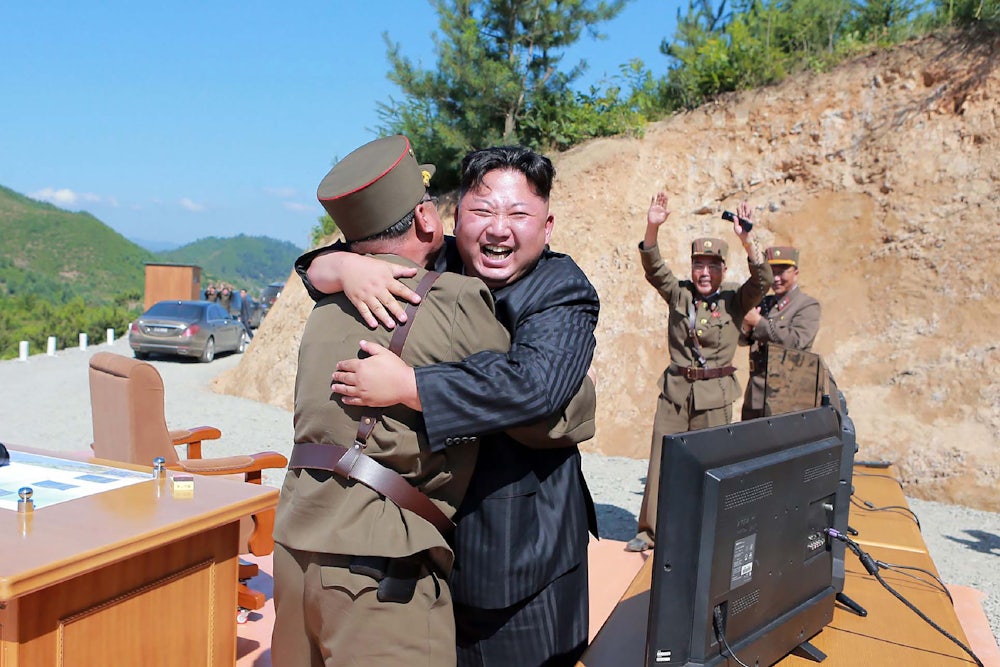A week ago, the president and Secretary of State Rex Tillerson seemed to believe that North Korea was ready to call it quits after months of saber-rattling, culminating with its threat to nuke Guam. “I am pleased to see that the regime in Pyongyang has certainly demonstrated some level of restraint that we’ve not seen in the past,” Tillerson told reporters, praising Kim Jong-un for not testing missiles in the wake of U.N. sanctions. “Kim Jong-un, I respect the fact that I believe he is starting to respect us,” Trump said at an Arizona rally.
But since those statements, North Korea has fired missiles on two occasions: One late last week and another on Monday. The second was arguably its most provocative test yet: The missile sailed over Hokkaido, eventually landing 700 miles east of the northern Japanese island and prompting Japan to instruct citizens to “evacuate to a sturdy building or basement.”
Trump responded by threatening, once again, the possibility of a military strike, saying “all options are on the table.” This is precisely the kind of spiraling situation that critics warned Trump about. And with tensions showing no signs of abating, the White House is increasingly facing two bad options: a preventive strike or a diplomatic solution in which North Korea is allowed to keep a number of nuclear weapons, practically ensuring a reality in which it will periodically threaten nuclear conflict to get what it wants.
“The fact that NK took the provocative step of launching a missile over Japan raises the possibility that it cannot be assumed to act responsibly vis-a-vis anyone, including ourselves,” Richard Haas wrote in an email to Axios. “Such an assumption is essential if we are to place our faith in deterrence. If we cannot make such an assumption, and if arms control fails to deliver, then a preventive strike becomes a serious option, notwithstanding its high risks and potential costs.”
It’s long been acknowledged that there are no good options when it comes to North Korea. But an increasingly belligerent regime in Pyongyang paired with a volatile American president makes an already dangerous situation terrifying. In retrospect, the brief period of calm last week may not come again anytime soon.
